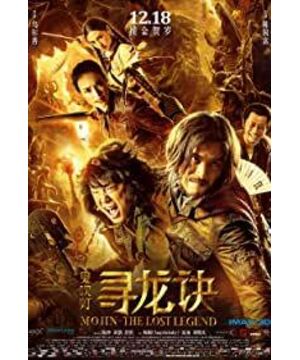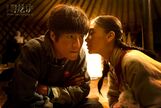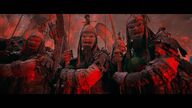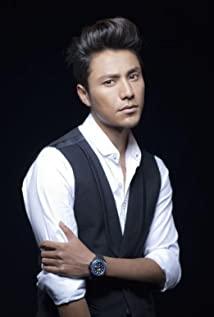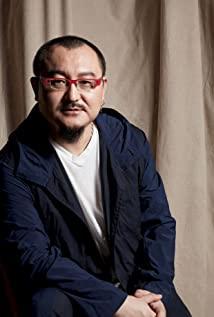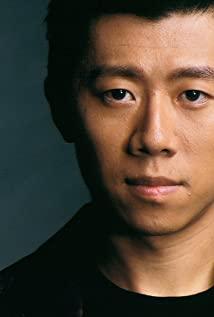Since the grand premiere of the Beijing Wanda CBD store last weekend, the following circle of friends has been swiped by "Long search", and all kinds of praises have been heard, as if the film and "Avatar" started an era, but calm I still hope to read these reviews after watching the movie.
I don’t really like reading Chinese novels, including tomb robbery themes. In addition to the three “Notes on Tomb Robbers”, I have also read one and a half of “Ghost Blowing the Lamp”. To be honest, I don’t like tomb robbery novels. , and the acceptance of "Ghost Blowing the Lantern" is far lower than that of "Notes on Tomb Raiders".
The reason why I don't like "Ghost Blowing the Lantern" is because of its materialistic view of tomb robbery, which greatly weakens the sense of horror and mystery that tomb robbery can bring. With wide-open brains and strange powers, "Ghost Blowing the Lamp" seems too normal. Of course, it is this normality that makes the novel "Ghost Blowing Lamp" more suitable for shooting into a commercial blockbuster.
Many people are saying that "Looking for the Dragon" is the first commercial blockbuster in Chinese history that can compete with Hollywood. In fact, this sentence is only half right, because the film's achievements in special effects are really nothing to say, although it can't be said. It is much better than Lu Chuan's bad movie "Nine-Story Demon Tower", but it is really shocking on the whole, and the excellent art and scene design are absolutely unprecedented in Chinese movies.
I think this film is indeed the closest to Hollywood standards among Chinese-language films so far, but on the long march to catch up with the Premiership and the United States, the film only considers the audio-visual language but does not make any achievements in the play. A breakthrough in vision can be solved by throwing money at it, and a problem that can be solved with money is not a problem. And many of the special effects in the film are not made by the Chinese themselves, so there is no breakthrough in the special effects of Chinese films. We are just a party to foreigners.
At first I thought it would be boring to compare the story of "Looking for the Dragon" with the story of "Nine-Layered Demon Pagoda". After all, the former is an authentic tomb robbery adventure movie, while the latter is just a pseudo-science fiction movie, but If you think about it, the two films have many striking similarities.
The stories of the two films actually started with the accident of the Cultural Revolution. After that, the protagonist's first love died, and then many years later, he discovered that the first love was resurrected or had the possibility of resurrection, and then returned to the old place where life and death were separated. Although the styles and narratives of the two films are completely different, the big frame is actually the same. It's just that the play of "Looking for the Dragon" is not as neurotic, so illogical, so twisted, and so self-talking as "Nine-layered Demon Pagoda".
I am very fortunate that "Looking for the Dragon" is a relatively simple and straightforward adventure story. With such a little political metaphor, it spends most of the time under the tomb. It is also very rare for a Chinese blockbuster to not be viewed with bitterness and hatred. History does not express the ambition of the screenwriter without worrying about the country and the people. It can be seen that the original intention of this film is pure entertainment, which is worthy of praise.
But even so, the story of the film is too simple and dry, and the characters don't do a good job telling the truth. First, the story of this film, as expected, has become a foil for special effects and a tool to connect five important special effects scenes. In a word, this film tells the story of Hu Bayi and his friends returning to the place where Ding Sitian died in search of a treasure, and finally found that the treasure is useless. What kind of suspense, basically look at the end at a glance, not to mention the ups and downs.
Second, the setting of the characters in the film is also quite disappointing. The three protagonists are barely ok, but the big golden teeth and the villains are simply unqualified. The relationship between Hu Bayi and Shirley Yang is quite convincing, and Wang Kaixuan's love for Ding Sitian's spare tire is also justified. The combination of the three of them as Captain Mojin may be the only reason why the story of the film did not completely collapse. . Xia Yu's big golden tooth is noisy and exaggerated from beginning to end, which is incompatible with everyone's performance style, just like a two-dimensional character who has become a three-dimensional character, especially the place where he goes crazy at the end, it is simply endless.
The two most disastrous characters in the film are Sister Hong, played by Liu Xiaoqing, and Yoko, played by Yan Zhuoling. The former's acting level is equal to Jiang Wenli's in "Master", while the latter uses Parkinson's pretense to pose. I always feel that the director of this character is to pay tribute to Kuriyama Chiaki in "Kill Bill". As villains, not only did the two not have a convincing motive, but they died neatly and neatly, and the necessity of existence was not strong. They belonged to the failed characters who could still tell the story after deletion. .
Finally, the third point, this film always gives people a feeling of killing chickens with a knife at the end, and even a feeling of a Chinese thriller horror film. I don’t know if it is because of censorship, but everything in the end was interpreted as an illusion. This tomb robbery process has become the protagonist's redemption for the past. This is too top-heavy. I would rather hope that at the end of this film, Sister Hong tries to get something to destroy the world. Don't have the feeling of watching the movie that is stuck in your throat now brought about by this ending.
But having said that, the special effects scenes in this film are indeed worth all the ticket prices. The long shot of the motion at the beginning opens the floating coffin, the tunnel wars against Japanese zombies during the Cultural Revolution, the war against mutants who first arrived at the tomb, the Naihe Bridge mechanism in the middle and the last The other side of the flower self-destructs, every scene is a visual climax, I especially like the part of Naihe Bridge, and coupled with the OST created by Koji Endo, the music scorer of Takashi Miike, there is still a lot of ignition.
Finally, I have to say that "Long Search" exposes an unavoidable weakness in tomb robbery movies, that is, when most of the time is in a state of adventure, no matter how strong the visual impact is, it will give people weakness in the end. I feel that the plot is not enough for special effects, and it will be boring if you stick to it. You should learn the layered story in the third part of "Indiana Jones", otherwise, after two or three parts, the novelty of this theme will be lost. will be gone!
View more about Mojin: The Lost Legend reviews


